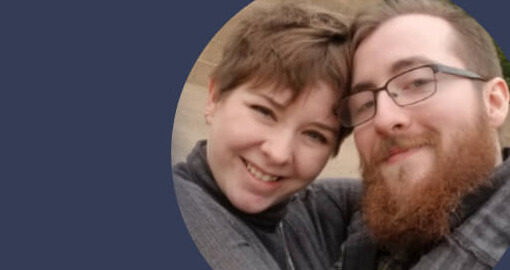5 Minute Read
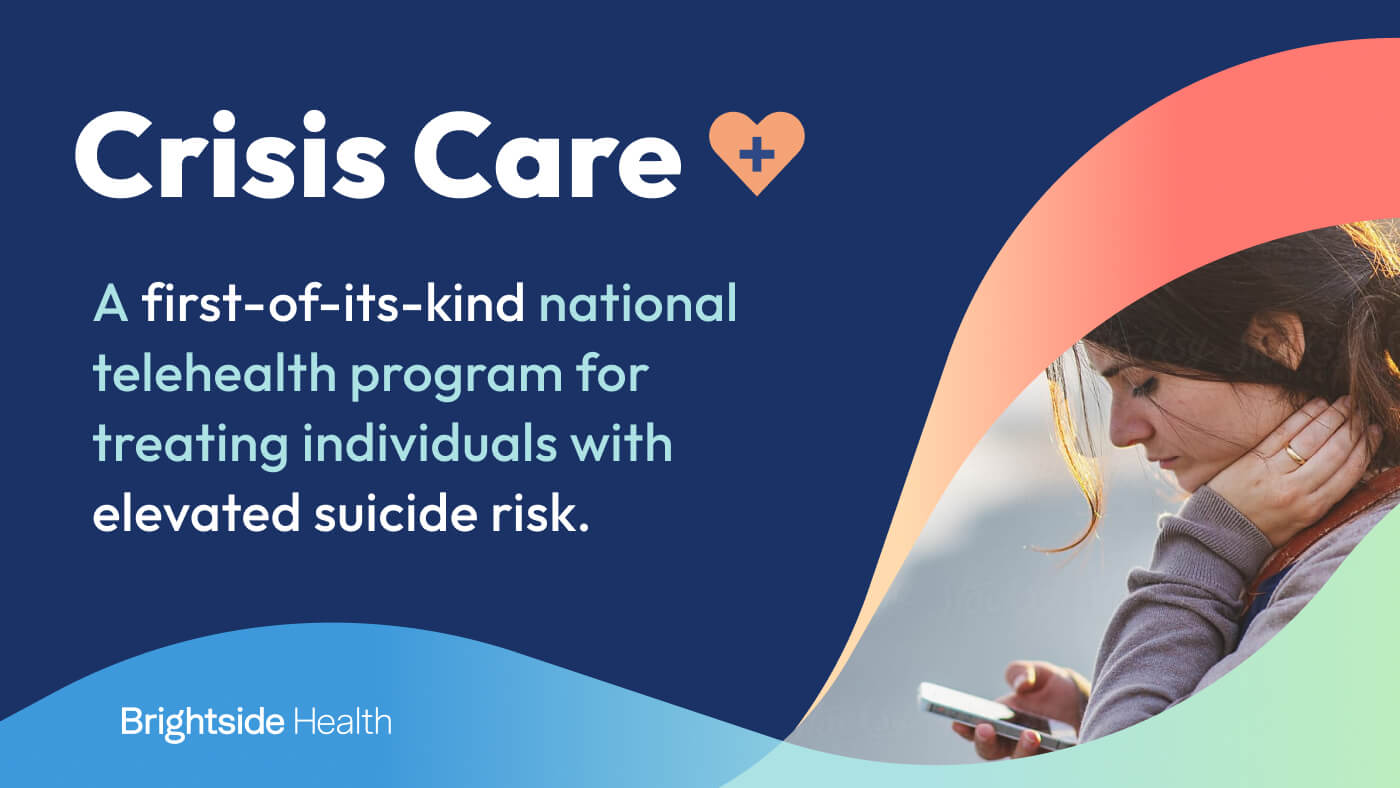
SAN FRANCISCO–December 12, 2022 – In response to the mental health epidemic, Brightside Health today announced Crisis Care, a first-of-its-kind national telehealth program for treating individuals with elevated suicide risk. Brightside Health delivers life-changing mental health care to individuals with mild-to-severe clinical depression, anxiety, and other mood disorders. With the addition of Crisis Care, the company will expand its services to individuals experiencing acute suicidal thoughts and behaviors.
According to the CDC, 130 Americans die every day by suicide – about one death every 11 minutes. Over the course of a year, more than 12 million people seriously consider suicide, 3.2 million make a plan, and 1.2 million people attempt suicide. The suicide crisis has been building for over 20 years, and with a growing provider shortage and a shrinking number of clinicians willing to risk treating high-severity and acuity patients, it’s getting worse.
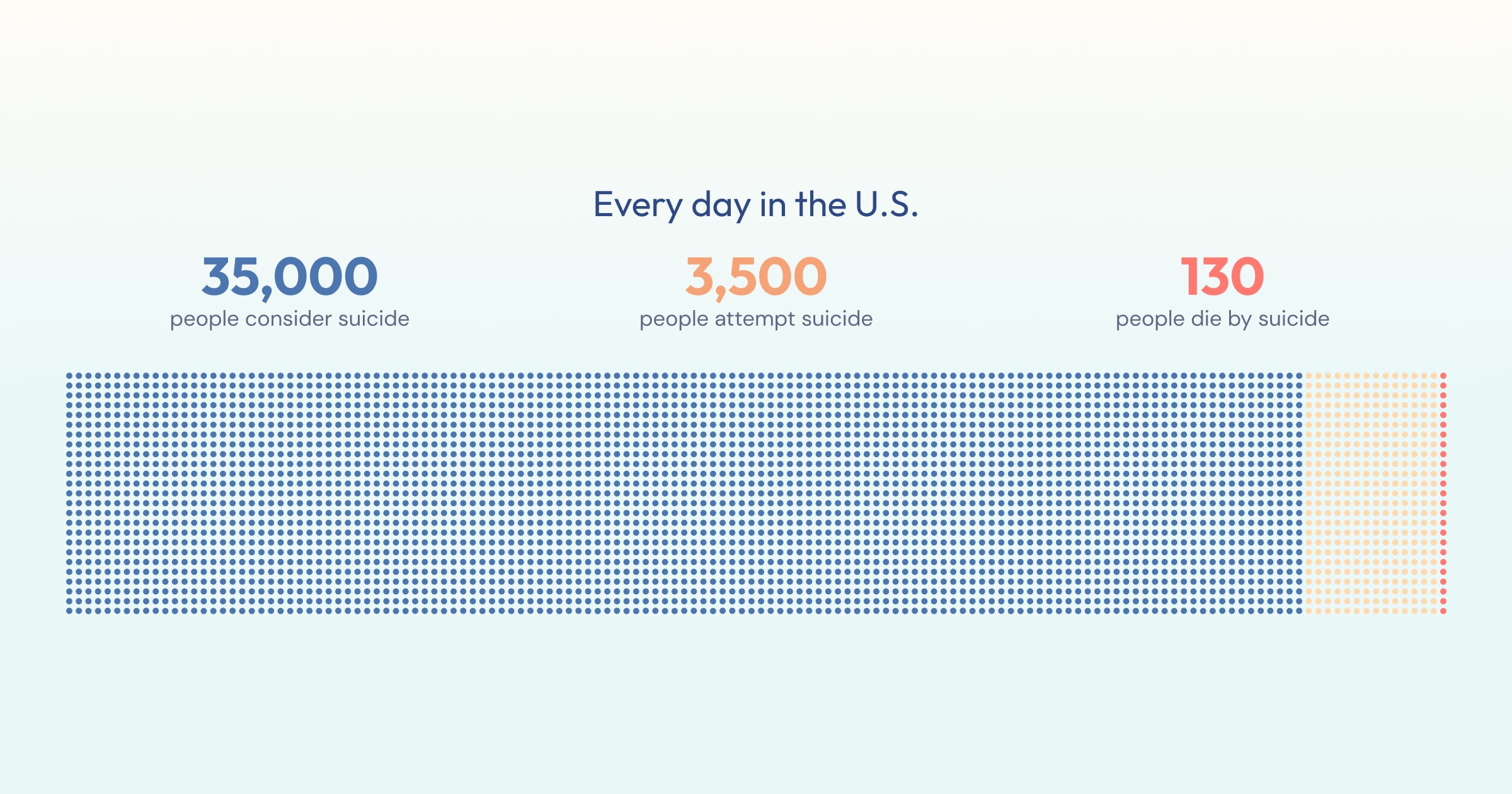
While telehealth has improved access to mental health care, the majority of virtual mental health services only treat patients with low-to-moderately severe conditions. This critical gap in care leaves lives at risk and increases healthcare costs due to avoidable ER visits and hospitalizations. Crisis Care was developed to fill this widening gap, providing timely access to specialized care for individuals with acute suicide risk.
“Simply put, we built Crisis Care to save lives,” said Brad Kittredge, CEO and co-founder of Brightside Health. “We have a responsibility to do more for this vulnerable population, and it’s critical to our mission of delivering life-changing mental health care to everyone who needs it. We look forward to helping as many people as possible.”
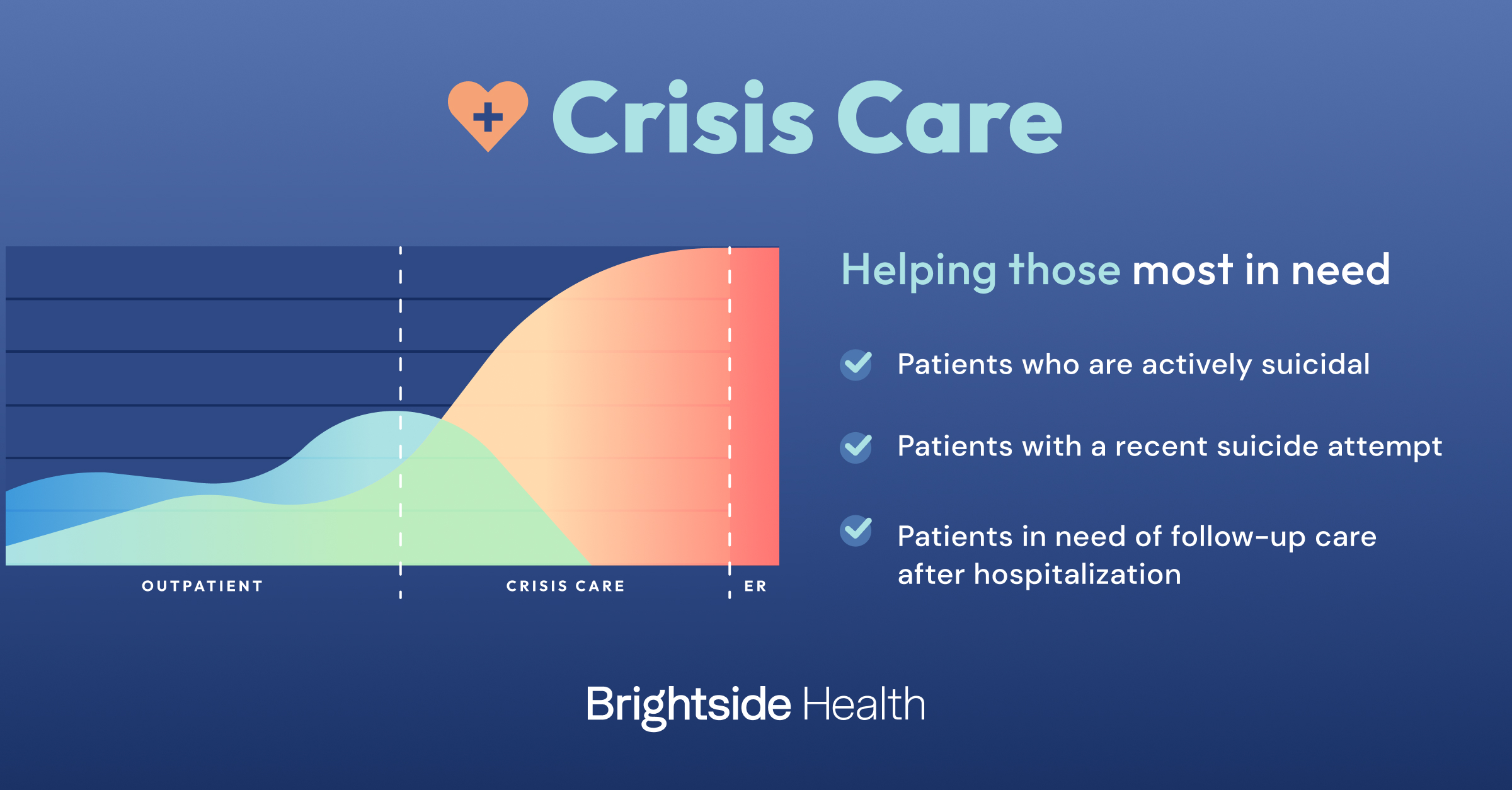
Based on the clinically-proven Collaborative Assessment and Management of Suicidality (CAMS) framework, Crisis Care is available to patients who are actively suicidal and/or have had a recent suicide attempt, as well as those in need of follow-up care after hospitalization. The high-touch, tech-enabled (4-12 week) program is staffed by a select group of CAMS-trained clinicians and includes 1:1 weekly video sessions, online check-ins, anytime messaging, and 24/7 call support. It also employs a structured, collaborative approach with documented in-session assessments, treatment planning, and safety plans. Crisis Care ensures safety and efficacy through the use of research-backed clinical protocols, rigorous oversight, and care coordination if the patient requires a higher level of treatment or is ready to step down to routine services.
“Patients with active suicide risk are often seen in settings where they cannot access the right kind of care,” said Mimi Winsberg, MD, Chief Medical Officer and co-founder of Brightside Health. “With Crisis Care, patients are quickly connected with CAMS-trained clinicians to get the most appropriate care. In doing so, we will change how our healthcare system operates and begin to reverse the staggering national statistics on suicide.”
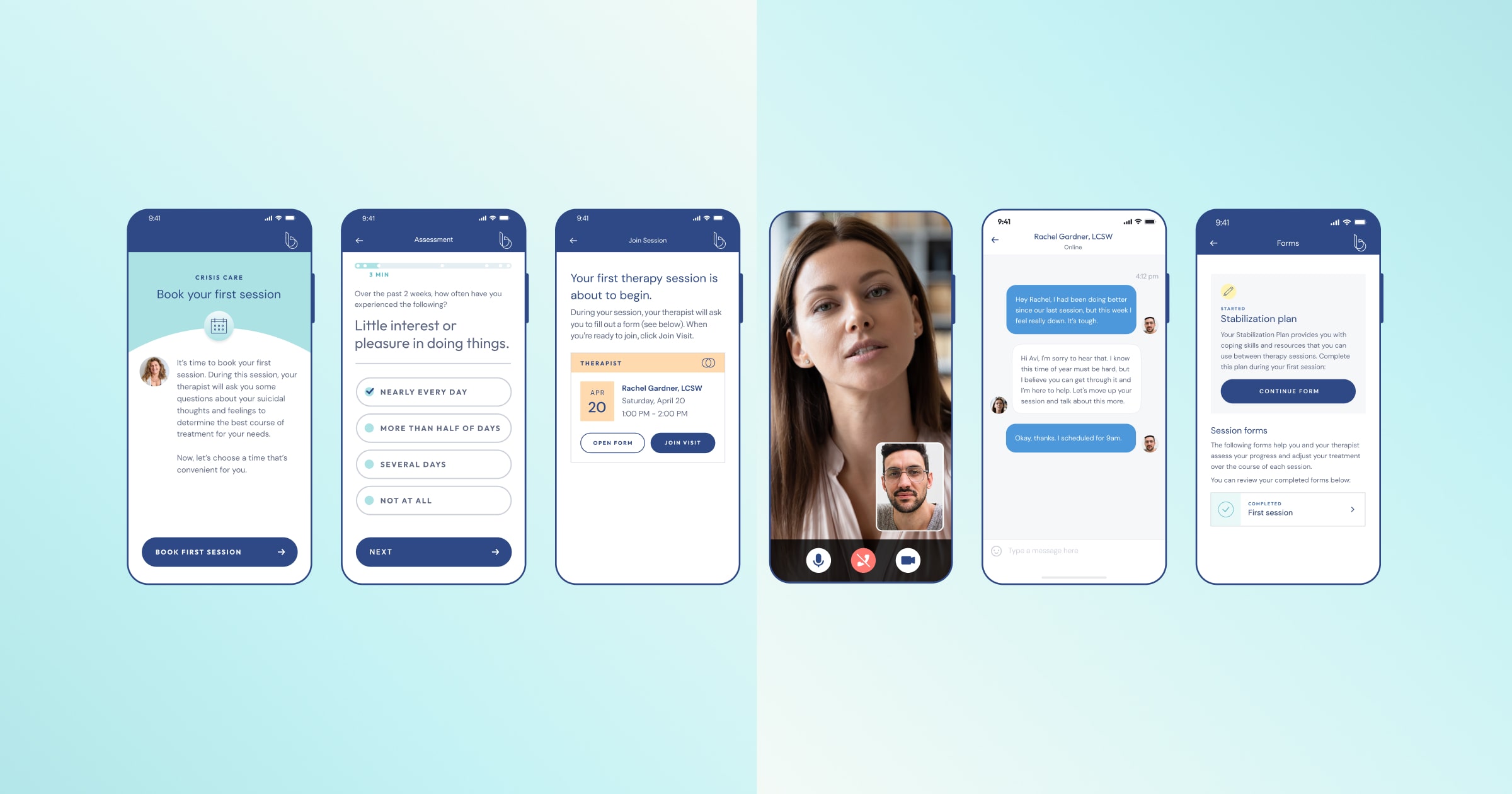
To date, Brightside Health’s proven care model has demonstrated significant treatment response in patients presenting with severe symptoms and passive thoughts of suicide. Upon entering care, 75% of patients have severe or moderately severe depression, 71% need help with three or more conditions, and 47% are experiencing suicidal ideation. Across the entire patient population, 86% experience clinically significant improvement within 12 weeks, and 71% achieve remission. Furthermore, a study published in JMIR Formative Research determined participants receiving care through Brightside Health’s telehealth platform were 4.3 times more likely to experience remission of suicidal ideation than the control group, with 77% experiencing elimination of suicidal ideation within 12 weeks.
Crisis Care is the natural progression for the organization as it aims to meet the unmet demand from individuals with elevated suicide risk. Clinicians will apply the same level of clinical rigor and expertise in treating this high-need population and will save lives with the support of key referral partners like NeuroFlow, a behavioral health platform that specializes in identifying and triaging individuals to the right level of care.
“Demand for behavioral healthcare has never been more acute, and we have an opportunity and responsibility to connect people who are suffering with the right resources,” said Tom Zaubler, MD, MPH and Chief Medical Officer of NeuroFlow. “We’re excited to support strategic initiatives from our partners like Crisis Care from Brightside Health and fundamentally believe in the life-saving work it will achieve.”
Crisis Care is available effective immediately in select states, with a full national roll out coming soon. To learn more about Crisis Care, including how to access the program, visit www.brightside.com/crisis-care. To learn more about Brightside Health, visit www.brightside.com.
About Brightside Health
Brightside Health delivers life-changing mental health care to people with mild to severe clinical depression, anxiety, and other mood disorders, including those with elevated suicide risk. Powered by proprietary AI, purpose-built technology, and a world-class clinician network, Brightside combines precision psychiatry and leading-edge therapeutic techniques to improve patient outcomes across the entire clinical spectrum, affordably and at scale. Brightside Health can be paid for with insurance in all 50 states and DC, with appointments available in 48 hours or less. Learn more at www.brightside.com.
About NeuroFlow
NeuroFlow integrates behavioral health across the care continuum by assessing and triaging people to get them to the right level of care, providing high-tech and high-touch support for populations that would typically fall through the cracks in today’s healthcare system. Proven to drive better clinical and financial outcomes for leading health systems, payors, and the Department of Defense covering 15 million lives, NeuroFlow’s platform combines consumer engagement with enterprise-level care management software and clinical support services to support integrated behavioral health at scale. To learn more, visit www.neuroflow.com.
Get in Touch







